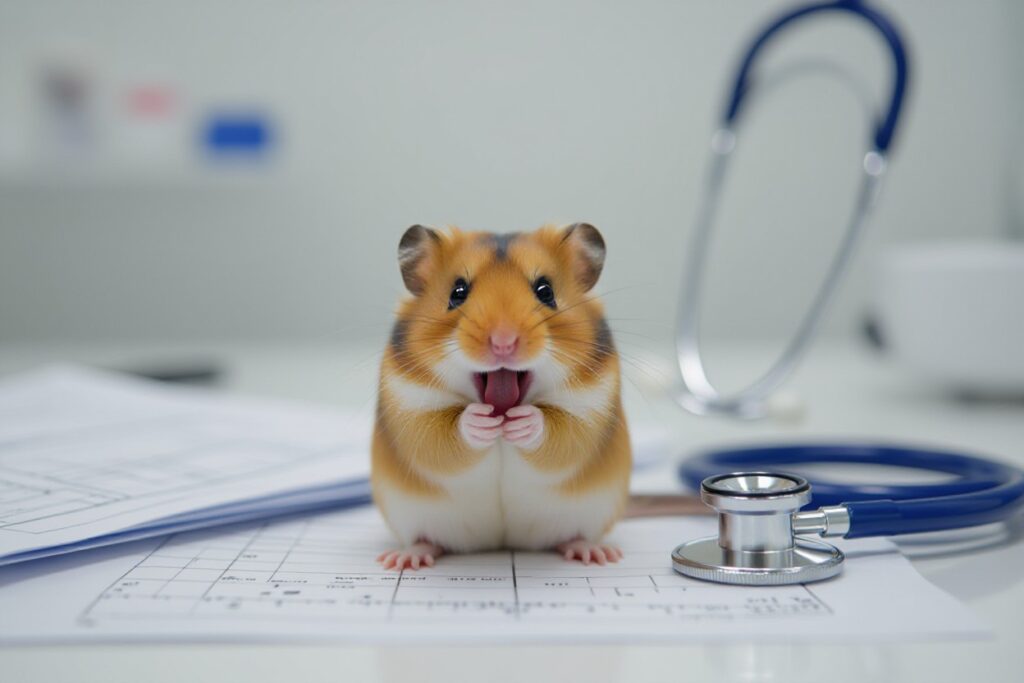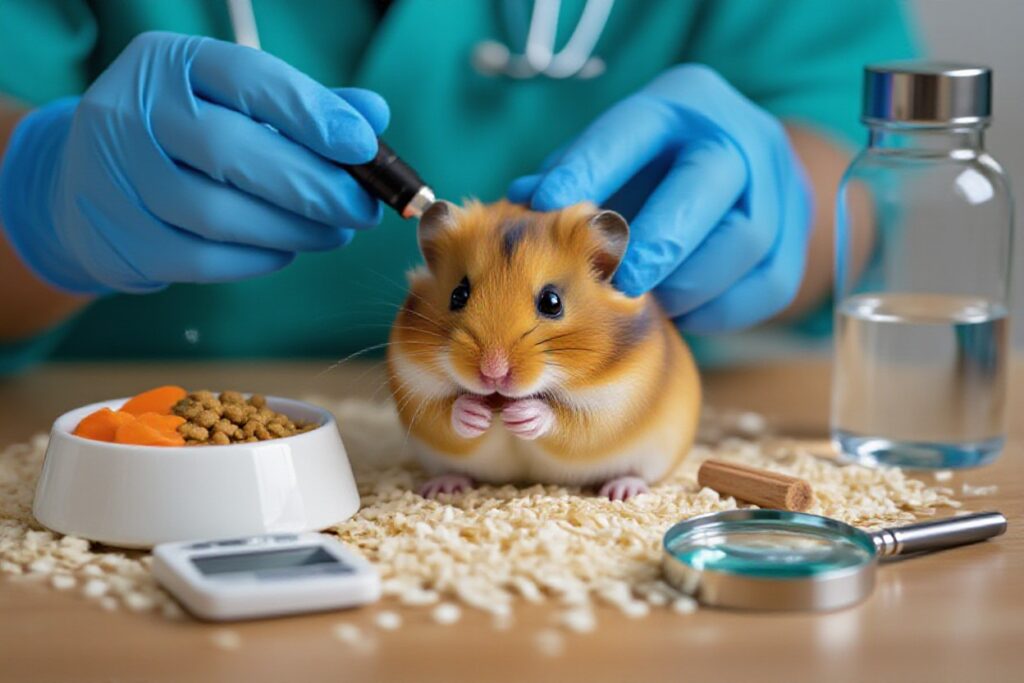There’s nothing quite as concerning for a hamster owner as seeing their beloved pet in poor health. From respiratory infections to dental problems, hamsters can be prone to a variety of health issues that require prompt attention. In this guide, we will explore some of the most common health problems that hamsters face and provide tips on how to manage and treat them effectively, ensuring your furry friend stays happy and healthy for years to come.
Common Health Issues in Hamsters
Respiratory Infections: Symptoms and Management
While hamsters make adorable pets, it’s crucial to be aware of the common health issues that can affect them. An imperative health concern in hamsters is respiratory infections. These infections can be caused by various factors such as poor ventilation, stress, or exposure to drafts. Symptoms of respiratory infections in hamsters include sneezing, wheezing, and labored breathing. Proper management involves keeping the hamster’s environment clean, providing fresh bedding, and seeking veterinary care if symptoms persist.
Digestive Disorders: Causes and How-To Tips for Care
An imperative health concern in hamsters is digestive disorders, which can be caused by factors like a diet high in sugar or inadequate fiber intake. Common symptoms of digestive disorders in hamsters include diarrhea, bloating, and a decrease in appetite. To prevent digestive issues, ensure your hamster has a well-balanced diet that includes a mix of pellets, fresh vegetables, and occasional treats. Recognizing the signs early and making dietary adjustments can help manage and prevent digestive disorders in hamsters.
- Provide plenty of fresh water to keep your hamster hydrated.
- Offer chew toys to help with proper digestion and teeth maintenance.

Skin and Coat Conditions
Factors Leading to Skin Problems
One of the common factors that can lead to skin problems in hamsters is poor hygiene and improper cage cleaning. Dusty bedding and dirty living conditions can cause irritation and skin infections in hamsters. Another factor is parasitic infestations such as mites or lice, which can cause itching, hair loss, and skin damage in hamsters.
- Ensure a clean and hygienic living environment for your hamster.
- Regularly check your hamster for signs of parasites.
- Provide a balanced diet to maintain your hamster’s overall health.
Perceiving any changes in your hamster’s skin condition is crucial in preventing and managing skin problems. If you notice any redness, hair loss, scabs, or excessive scratching, it’s important to address the issue promptly to prevent it from escalating.
Tips for Maintaining Healthy Fur
You should brush your hamster regularly with a soft-bristled brush to remove loose fur and prevent matting. Additionally, ensure your hamster has a balanced diet rich in vital nutrients such as protein and vitamins to support healthy fur growth. Providing a dust bath occasionally can help your hamster maintain a clean and healthy coat.
- Handle your hamster gently and avoid excessive stress to prevent fur loss.
- Consult a veterinarian if you notice any changes in your hamster’s fur quality or quantity.
After all, a healthy and shiny coat is a sign of a happy and well-cared-for hamster.

Hamster Dietary Needs
How-To Guide for Balanced Nutrition
To meet the dietary needs of your hamster, it is vital to provide a well-balanced diet that includes a mix of commercial hamster food, fresh vegetables, and occasional treats such as seeds or fruits. Make sure to offer fresh water daily and monitor your hamster’s eating habits to ensure they are getting the right nutrients.
Managing Obesity and Dietary-Related Disorders
Obesity is a common health issue in hamsters that can lead to serious medical conditions. To manage obesity and dietary-related disorders, it is crucial to monitor your hamster’s food intake and avoid feeding them high-fat or sugary treats excessively. Provide opportunities for exercise by adding a hamster wheel or creating a safe play area for them to stay active.
Guide: Prevention is key when it comes to managing obesity in hamsters. Be mindful of portion sizes, avoid overfeeding, and regularly assess your hamster’s body condition to ensure they are maintaining a healthy weight. Consult with a veterinarian if you notice any sudden changes in their eating habits or weight to address any potential dietary issues promptly.

Behavioral and Environmental Factors
Now let’s explore into the behavioral and environmental factors that can impact a hamster’s health and well-being. These factors play a crucial role in determining the overall quality of life for your furry friend.
How-To Create a Stress-Free Habitat
StressFree It is important to provide your hamster with a calm and comfortable environment to help reduce stress. Ensure the cage is large enough for them to move around freely, with plenty of bedding for burrowing. Keep the cage in a quiet area away from loud noises and sudden movements. Provide your hamster with enrichment such as toys and tunnels to encourage natural behaviors and mental stimulation.
Recognizing and Addressing Abnormal Behaviors
If you notice any changes in your hamster’s behavior, it is important to address them promptly. Abnormal behaviors such as excessive chewing, aggression, or lethargy could be signs of stress, illness, or discomfort. A visit to the veterinarian may be necessary to rule out any underlying health issues.
Final Words
Upon reflecting on the common health issues in hamsters and how to manage them, it is clear that early detection and prompt intervention are crucial for ensuring the well-being of these beloved pets. By being vigilant about their diet, environment, and behavior, hamster owners can prevent many health problems and provide a safe and comfortable life for their furry companions. Regular veterinary check-ups, proper hygiene practices, and a balanced diet can go a long way in keeping hamsters healthy and happy. Recall, the key to addressing health issues in hamsters is to always be proactive and seek professional help when needed.
FAQ
Q: What are some common health issues in hamsters?
A: Common health issues in hamsters include respiratory infections, diarrhea, wet tail, dental problems, and mites.
Q: How can I tell if my hamster is sick?
A: Signs that your hamster may be sick include lethargy, loss of appetite, weight loss, hunched posture, discharge from the eyes or nose, and changes in behavior.
Q: What should I do if my hamster is showing signs of illness?
A: If your hamster is showing signs of illness, it is important to take them to a veterinarian who is experienced in treating small animals like hamsters.
Q: How can I prevent health issues in my hamster?
A: To prevent health issues in your hamster, provide a clean and spacious cage, a balanced diet, fresh water daily, regular exercise, and proper bedding materials.
Q: How can I manage common health issues in hamsters?
A: Managing common health issues in hamsters involves following the veterinarian’s treatment plan, keeping the cage clean, providing a stress-free environment, and monitoring your hamster’s condition closely.











